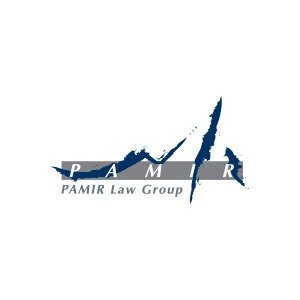Best Investment Lawyers in Taiwan
Share your needs with us, get contacted by law firms.
Free. Takes 2 min.
Or refine your search by selecting a city:
List of the best lawyers in Taiwan
About Investment Law in Taiwan
Investment law in Taiwan is designed to foster a healthy and competitive investment environment that attracts foreign investors and supports local businesses. Taiwan, being a technologically advanced and business-friendly location, provides a dynamic market for various types of investments. Key legislation such as the Statute for Investment by Foreign Nationals and the Company Act governs foreign direct investment (FDI) and outlines the legal framework for business operations, mergers, acquisitions, and joint ventures.
Why You May Need a Lawyer
When engaging in investment activities in Taiwan, you may encounter several situations where the expertise of a lawyer can be invaluable. These include:
- Navigating complex regulatory requirements and ensuring compliance with local laws.
- Drafting, negotiating, and enforcing contracts related to investments.
- Managing intellectual property rights to safeguard technology and business methodologies.
- Addressing disputes or litigation that may arise during the course of doing business.
- Handling mergers and acquisitions, including due diligence and structuring transactions.
- Understanding and applying for tax incentives and other investment-related benefits offered by the government.
Local Laws Overview
Key aspects of the local laws relevant to investments in Taiwan include:
- Foreign Investment Approval: The Investment Commission of the Ministry of Economic Affairs (MOEA) must approve foreign investments, particularly in restricted industries.
- Corporate Structure: Companies can choose from various structures, such as limited liability companies or branch offices, depending on their business needs.
- Intellectual Property Rights: Taiwan offers robust protection for patents, trademarks, and copyrights, essential for tech and research-heavy industries.
- Taxation: Businesses are subject to various taxes including corporate income tax, VAT, and others, with incentives available for certain sectors.
- Employment Law: Understanding local labor regulations, including hiring practices and labor standards, is crucial for companies operating in Taiwan.
Frequently Asked Questions
What is the process for setting up a company in Taiwan?
Setting up a company involves choosing a business structure, registering the company with the relevant authorities, obtaining necessary licenses, and opening a corporate bank account.
Are there any industries that are off-limits to foreign investors?
Yes, certain industries, like telecommunications and general production of weaponry, may have restrictions or require additional approvals for foreign investors.
How does Taiwan protect foreign investments?
Taiwan provides legal protection under the Statute for Investment by Foreign Nationals, ensuring fair treatment and offering recourse through arbitration or legal proceedings if disputes arise.
What tax incentives are available for foreign investors?
Tax incentives include investment tax credits, exemptions, and deductions aimed at promoting R&D, green technology, and manufacturing industries.
Is it mandatory to have a local partner when investing in Taiwan?
Not necessarily, but having a local partner can be beneficial in navigating the business environment and regulatory landscape effectively.
What are the common business structures for foreign investors?
The most common structures are limited liability companies, branch offices, and representative offices, each having specific advantages and regulatory requirements.
How are intellectual property rights enforced in Taiwan?
IP rights are enforceable through a combination of legislative measures, dedicated enforcement bodies, and through Taiwan’s judicial system.
What should I consider while drafting investment contracts in Taiwan?
Key considerations include clarity on terms, adherence to local laws, dispute resolution clauses, and securing IP rights. Legal expertise is often crucial.
Are there any restrictions on repatriating profits from Taiwan?
Profits can generally be repatriated without restrictions, though proper procedures and foreign exchange regulations must be followed.
How can I handle a business dispute in Taiwan?
Business disputes may be handled through negotiation, mediation, arbitration, or litigation depending on the specifics of the case and contract stipulations.
Additional Resources
Here are some resources and organizations that can assist those seeking legal advice on investment in Taiwan:
- Investment Commission, MOEA: The governmental body responsible for overseeing foreign investments.
- Taiwan Bar Association: A professional body that can help find qualified legal practitioners.
- American Institute in Taiwan (AIT): Offers guidance to US businesses investing in Taiwan.
- Taiwan External Trade Development Council (TAITRA): Provides support and information for business endeavors in Taiwan.
- Intellectual Property Office: Offers resources on IP rights protection in Taiwan.
Next Steps
If you require legal assistance with investments in Taiwan, consider the following steps:
- Research and Identify Needs: Clearly define what legal services you need, such as contract review, dispute resolution, or tax consultancy.
- Consult with Experts: Reach out to law firms or legal professionals with expertise in Taiwanese investment law for consultation.
- Verify Credentials: Ensure that the lawyer or firm you choose is licensed and has a track record in handling investment-related cases.
- Prepare Documentation: Gather all necessary documents, contracts, and prior communications related to your investment to provide context to your legal advisor.
- Consider Seeking Support: Engage with local chambers of commerce or business groups that can provide additional support and networking opportunities.
Lawzana helps you find the best lawyers and law firms in Taiwan through a curated and pre-screened list of qualified legal professionals. Our platform offers rankings and detailed profiles of attorneys and law firms, allowing you to compare based on practice areas, including Investment, experience, and client feedback.
Each profile includes a description of the firm's areas of practice, client reviews, team members and partners, year of establishment, spoken languages, office locations, contact information, social media presence, and any published articles or resources. Most firms on our platform speak English and are experienced in both local and international legal matters.
Get a quote from top-rated law firms in Taiwan — quickly, securely, and without unnecessary hassle.
Disclaimer:
The information provided on this page is for general informational purposes only and does not constitute legal advice. While we strive to ensure the accuracy and relevance of the content, legal information may change over time, and interpretations of the law can vary. You should always consult with a qualified legal professional for advice specific to your situation.
We disclaim all liability for actions taken or not taken based on the content of this page. If you believe any information is incorrect or outdated, please contact us, and we will review and update it where appropriate.
Browse investment law firms by city in Taiwan
Refine your search by selecting a city.
















